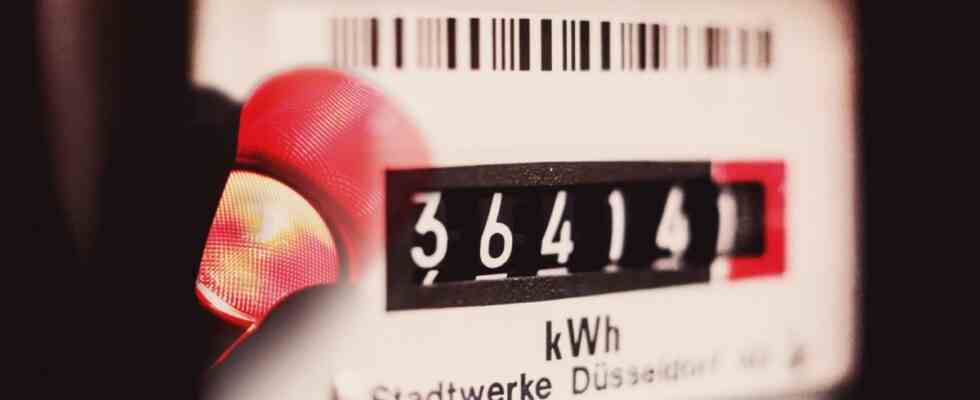It is a phenomenon of this energy crisis that customers know electricity and gas prices per kilowatt hour (kWh) in cents. They are something like the new butter price that many people use as a guide in the supermarket. Now it’s even easier to remember: From March onwards, the energy price brakes will apply for a little longer than a year. They reduce the costs for all consumers who pay more than 40 cents for electricity, twelve cents for gas and 9.5 cents for district heating per kWh. If the supplier’s prices are higher, the state compensates for the difference. So he takes on part of the bill.
The idea is to relieve people in the energy crisis as quickly as possible. At the beginning of 2023 lay According to the Federal Association of Energy and Water Management the average price for electricity at 48 cents, eight cents above the cap. The legislator is aware of a problem: suppliers could increase the prices at will and receive full compensation. Customers don’t complain because they don’t feel the increased costs. That is why in the relevant laws a ban on abuse: It is intended to prevent suppliers from collecting state money without being able to justify high prices with increased costs. Since January, this has been controlled by a separate department with 18 positions in the Federal Cartel Office. Anyone who violates the ban must pay a fine in case of doubt.
Their task is not easy, says Cartel Office head Andreas Mundt: “It is anything but trivial to find the black sheep among thousands of suppliers with a wide variety of tariffs and tens of thousands of individual contracts with industrial customers.” But you’re making good progress.
Figures from the comparison platform Verivox show that basic suppliers in particular have significantly increased the price of electricity around the turn of the year: in December it was still below 40 cents per kWh on average, in February it was already 48 cents. Basic suppliers are those companies that supply most people in a region with electricity or gas, often the municipal utilities. The Bundeskartellamt has so far considered these increases to be inconspicuous.
In 2022, basic suppliers were often cheaper than the competition
During the acute energy crisis in 2022, the basic suppliers were often even cheaper than the competition: They usually stock up on electricity and gas wholesale for the long term, so they had already procured energy cheaply. Then, however, they also had to buy on expensive terms, which could explain the price increase. On the other hand, there are now discounter suppliers who offer electricity for less than 40 cents, according to the Verivox data. These companies buy at short notice and benefit from the fact that electricity prices on the exchanges are currently falling. Energy expert Hans Weinreuter from the Rhineland-Palatinate consumer center also reports ranges between 30 and 60 cents per kWh. This is difficult to justify at the top: “Anything that clearly exceeds 50 cents per kilowatt hour in terms of electricity – the Federal Cartel Office would be asked to take a closer look.”

